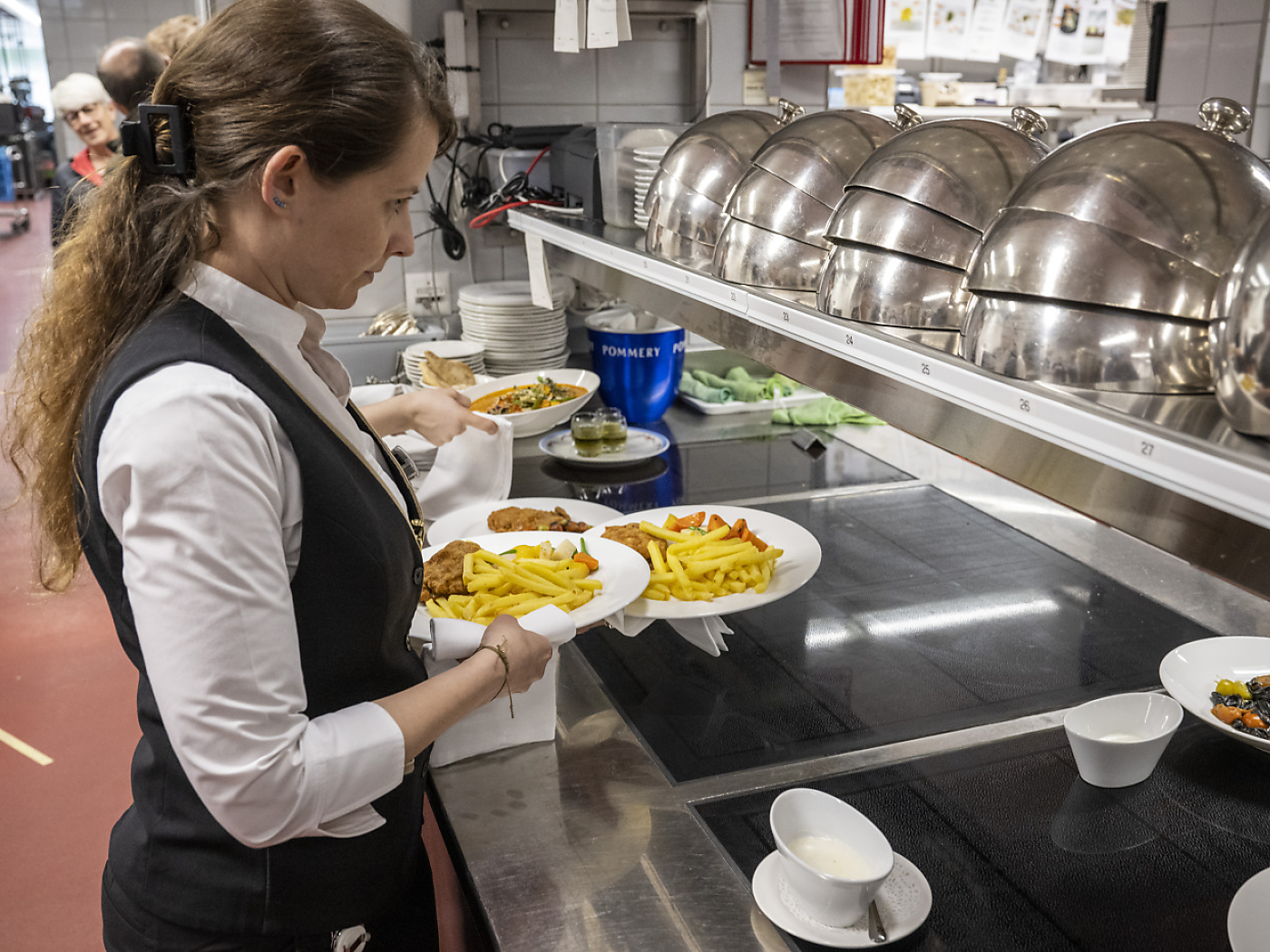
Gender wage gap is shrinking in Switzerland – slowly

The gender wage gap is narrowing in Switzerland, although it remains sizeable and partly unexplained: in 2022 women earned on average 16.2% less than their male counterparts.
+Get the most important news from Switzerland in your inbox
In 2020 the wage gap was 18%, and 19% in 2018, an analysis of all salaries – from the private and public sectors – by the Federal Statistical Office (FSO) shows.
These disparities are partly attributable to structural differences, such as the level of education, the number of years of service in a company and the hierarchical function exercised, FSO officials explained on Tuesday.
They also reflect the different ways in which women and men enter the labour market. It is also important to note that the higher the management function held, the more pronounced the difference in salaries.

More
Salary gap between men and women narrows in Switzerland
The wage gap has narrowed for federal, cantonal and municipal employees as a whole (18.1% in 2018, 15.1% in 2020 and 13.8% in 2022) and private sector employees (19.5%, 19.6% and 17.5%). In that sector, however, there is considerable variation among the different branches of the economy: for example, women earned 7.6% less than men in the hotel and restaurant industry, 17.4% less in retail trade, 19.3% less in the engineering industry and 29.4% less in financial and insurance activities.
Some of the disparity, however, remains unexplained. Comparing female and male wage levels with the same structural profile, in 2022 the unexplained share for the economy as a whole was 48.2% (49.6% in the public, 44.9% in the private sector), compared with 47.8% in 2020 and 45.4% in 2018.
The unexplained gap amounted to CHF657 per month in 2022 (2020: CHF717). Again, however, the picture is quite varied, ranging from CHF142 for those working in hotels and restaurants to CHF1,274 for those employed by banks and insurance companies. In the public sector, the average unexplained wage difference was CHF623 per month.
Adapted from Italian by DeepL/sb
This news story has been written and carefully fact-checked by an external editorial team. At SWI swissinfo.ch we select the most relevant news for an international audience and use automatic translation tools such as DeepL to translate it into English. Providing you with automatically translated news gives us the time to write more in-depth articles.
If you want to know more about how we work, have a look here, if you want to learn more about how we use technology, click here, and if you have feedback on this news story please write to english@swissinfo.ch.

In compliance with the JTI standards
More: SWI swissinfo.ch certified by the Journalism Trust Initiative






























You can find an overview of ongoing debates with our journalists here . Please join us!
If you want to start a conversation about a topic raised in this article or want to report factual errors, email us at english@swissinfo.ch.